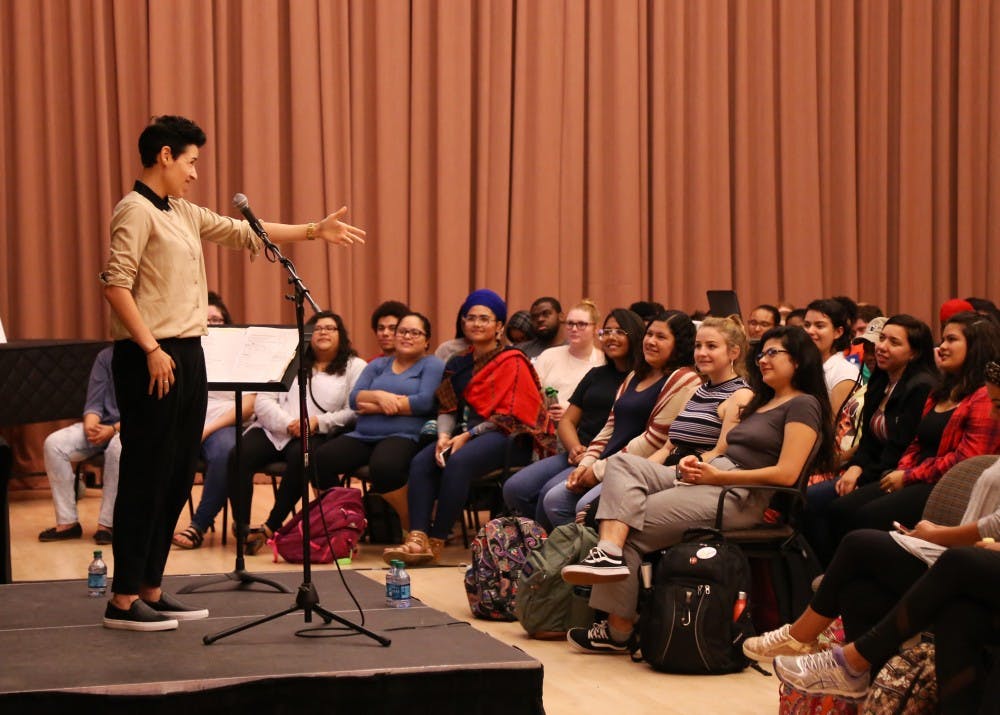Poet Denice Frohman transitioned between shouts and whispers as she spoke about borders, street vendors and being multicultural and queer in the United States on Wednesday night in the Neal-Marshall Black Culture Center Grand Hall.
Visitors lined the walls well before the performance began as seats were taken and the room was filled with about 100 students, staff and faculty.
Although Frohman, an award-winning poet, has performed at more than 200 colleges and universities, she expressed her gratitude for visiting IU in particular.
“One of my biggest regrets is that I didn’t have a La Casa in college, so I’m so thankful to be a part of this,” she said.
She performed her poetry as part of Hispanic Heritage Month. The performance was sponsored by the Latino Studies department, LGBTQ+ Culture Center, La Casa Latino Cultural Center and Office of the Vice President for Diversity, Equity and Multicultural Affairs.
Gianni Cardin, an IU student studying creative writing, said she was inspired by Frohman to continue to pursue her dream of being a writer.
“It’d be really easy to go on and on about her accomplishments, but what’s more exciting to me is that she’s giving a voice to young writers,” Cardin said.
Frohman began her performance with a poem about immigration called “Borders.” The piece centered around a young Hispanic girl named Ana Maria and the discrimination she experienced in and out of the classroom. The poem is about power and resistance, she said.
“There are borders that can’t be crossed, but borders that can only be crossed by stubborn backbone,” she read from a piece of paper.
She dedicated another poem to the piraguero, who she visited many times as a Puerto Rican child. She said that a piraguero, or a piragua man, is a street vendor that sells snow cones.
Although the room flooded with laughter as she read it, she said the piece is about the injustice against the working man.
“This country is sustained by people who work with their hands, yet we still criminalize them,” she said. “How quickly we forget who sustains this country.”
Another poem centered around her first kiss, which she said was a coming-of-age experience about being comfortable with her sexuality.
“I wrote this for anyone who feels broken or that they don’t belong in society,” she said. “I want you to know that you do.”
She concluded her performance by doing a Q&A with the crowd where participants expressed their gratitude and shared their own experiences relating to her work.
“What a blessing when we’re not supposed to be together, when we’re supposed to be isolated by race and gender and more, that we all made a nonverbal agreement to come here anyway,” she said to the crowd.



